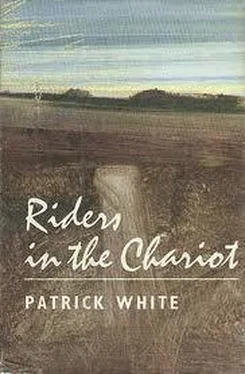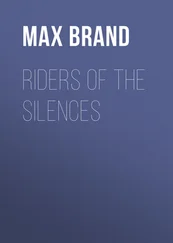Patrick White
Riders in the Chariot
_The Prophets Isaiah and Ezekiel dined with me, and I asked them how they dared so roundly to assert that God spoke to them; and whether they did not think at the time that they would be misunderstood, and__ so _be the cause of imposition__. _Isaiah answer'd: "I saw no God, nor heard any, in a finite organical perception; but my senses discover'd the infinite in everything, and as I was then perswaded, and remain confirm'd, that the voice of honest indignation is the voice of God, I cared not for consequences, but wrote__…." _I then asked Ezekiel why he eat dung, and lay so long on his right and left side! he answer'd, "The desire of raising other men into a perception of the infinite: this the North American tribes practise, and is he honest who resists his genius or conscience only for the sake of present ease or gratification!"__
— WILLIAM BLAKE
"WHO WAS that woman?" asked Mrs Colquhoun, a rich lady who had come recently to live at Sarsaparilla. "Ah," Mrs Sugden said, and laughed, "that was Miss Hare." "She appears an unusual sort of person." Mrs Colquhoun ventured to hope. "Well," replied Mrs Sugden, "I cannot deny that Miss Hare is _different__." But the postmistress would not add to that. She started poking at a dry sponge. Even at her most communicative, talking with authority of the weather, which was her subject, she favoured the objective approach. Mrs Colquhoun was able to see for herself that Miss Hare was a small, freckled thing, whose stockings, at that moment, could have been coming down. To tell the truth, Mrs Colquhoun was somewhat put out by the postmistress's discretion, but could not remain so indefinitely, for the war was over, and the peace had not yet set hard. Miss Hare continued to walk away from the post office, through a smell of moist nettles, under the pale disc of the sun. An early pearliness of light, a lamb's-wool of morning promised the millennium, yet, between the road and the shed in which the Godbolds lived, the burnt-out blackberry bushes, lolling and waiting in rusty coils, suggested that the enemy might not have withdrawn. As Miss Hare passed, several barbs of several strands attached themselves to the folds of her skirt, pulling on it, tight, tight, tighter, until she was all spread out behind, part woman, part umbrella. "You could get torn," Mrs Godbold warned, who had come up to the edge of the road, in search of something, whether child, goat, or perhaps just the daily paper. "Oh, I could get torn," Miss Hare answered. "But what is a little tear?" It did not matter. Mrs Godbold was rather large. She smiled at the ground, incredulous, but glad. "I saw a wombat," Miss Hare called. "Not a wombat! In these parts? I do not believe you!" Mrs Godbold answered back. Miss Hare laughed. "What did it look like?" Mrs Godbold called, and laughed. Still looking in the grass. "I will tell you," Miss Hare declared, laughing, but always walking away. It did not matter to either that much would remain unexplained. It did not matter that neither had looked at the other's face, for each was aware that the moment could yield no more than they already knew. Somewhere in the past, that particular relationship had been fully ratified. Miss Hare went on, together with her emancipated skirt. With the back of her hand she hit a fence-post, to hear her father's bloodstone ring. She would knock thus on objects, to punctuate periods which, otherwise, might never have had an end. Now she heard the redeeming knock. She heard the wings of a bird suddenly break free from silence. She sang a little, or made sounds. All along the road-or track, the older people still called it-which rambled down from Sarsaparilla to Xanadu, the earth was black and oozy in the early morning of early spring. In all that dreamy landscape it seemed that each particle, not least Miss Hare herself, contributed towards some perfection. Nothing could be added to improve the whole. Yet, was she not about to attempt? Miss Hare stood still in the middle of the road. So she had stood in the post office, only, then, she had worn the kind of expression people expected. "This is something of an occasion, Mrs Sugden," she had said. There were those who could never understand Miss Hare's manner of speech, but the postmistress had grown used to it. "Well, now," Mrs Sugden said, arranging some papers nicely, and the little glue bottle which use had almost glued up. Then she waited. "Yes, "said Miss Hare. She could not find the horrid pen. She could not find the telegraph forms, sandy like her own skin. "I have been in touch with a person. A widow. In Melbourne. In an advertisement," she said, and found the forms. "I am engaging a housekeeper for Xanadu." "Well, now, I am real pleased!" said Mrs Sugden, and was truly. "You will not tell?" asked Miss Hare. How she hated the vicious pen. "Oh dear, no!" protested Mrs Sugden. "What is an official position if not a position of trust?" Miss Hare considered. The post-office pen pricked the paper. "I will tell you all about it," she decided. "But must write the telegram. To Melbourne." Mrs Sugden knew how to wait. Miss Hare began to write. "She describes herself as a lady-capable and refined." "Oh dear, I should hope so!" exclaimed Mrs Sugden, blushing for other possibilities. "In these days, and under the same roof!" Miss Hare ploughed her way through the ugly desert of the telegraph form. "I am not afraid," she said. "Of anything. Or not of the things people are afraid of." "There are other things, of course," agreed Mrs Sugden, who, in her official position, must have experienced an awful lot. The postmistress waited. Miss Hare had on that old hat, wicker rather than straw-it was so very coarse-which she wore summer and winter regardless, and which gave her at times the look of a sunflower, at others, just an old basket coming to pieces. From where they were standing at the counter Mrs Sugden was able to look down at the kind of navel right at the centre of the crown. Miss Hare was that short. All was hat, and a hand extended from it, having trouble with a pen. The pen appeared to be resisting. Mrs Sugden stood and wondered where the hat could have come from. Nobody remembered seeing any other. "It is all due to my Cousin Eustace Cleugh," began Miss Hare, who had just managed the signature. "He came here very many years ago. You will not remember. The way people sometimes used to send their sons on a visit to relatives in Australia. It seemed astonishing then. To _Australia__! Two wars have made a difference, of course, and the food parcels. But my Cousin Eustace came-he was somehow on my mother's side, through Aunt Fanny of Banjo Downs. Oh, it was splendid! The bachelors' quarters full. And they lit the chandelier almost every night. And balls, with music from Sydney. My mother said I should mingle with the guests-I was then a young girl; my hair had just been put up-but how could I mingle when I must watch all the people who had come to Xanadu? There was one girl-I must tell you-called Helen Antill, in a dress embroidered with tiny mirrors. I overheard my mother remark that perhaps she should not have invited that Miss Antill. 'Nor any other girl,' my father replied; 'nor young men either.' My father had to have his joke. 'And let us enjoy our pudding in peace,' he said, 'and bread sauce.' My father was fond of bread sauce with a roast fowl, and one of the cooks used to make him a special kind." "Ah?" "With _crushed onion__!" cried Miss Hare. Mrs Sugden shifted foot. Much of her life had been spent in waiting. "But let me see-my Cousin Eustace, who came and went, was in some way disappointing to my parents, though in after years he made amends. Oh dear, yes, he made me a little allowance, because his circumstances permitted, from the island of Jersey where he lives.
Читать дальше












